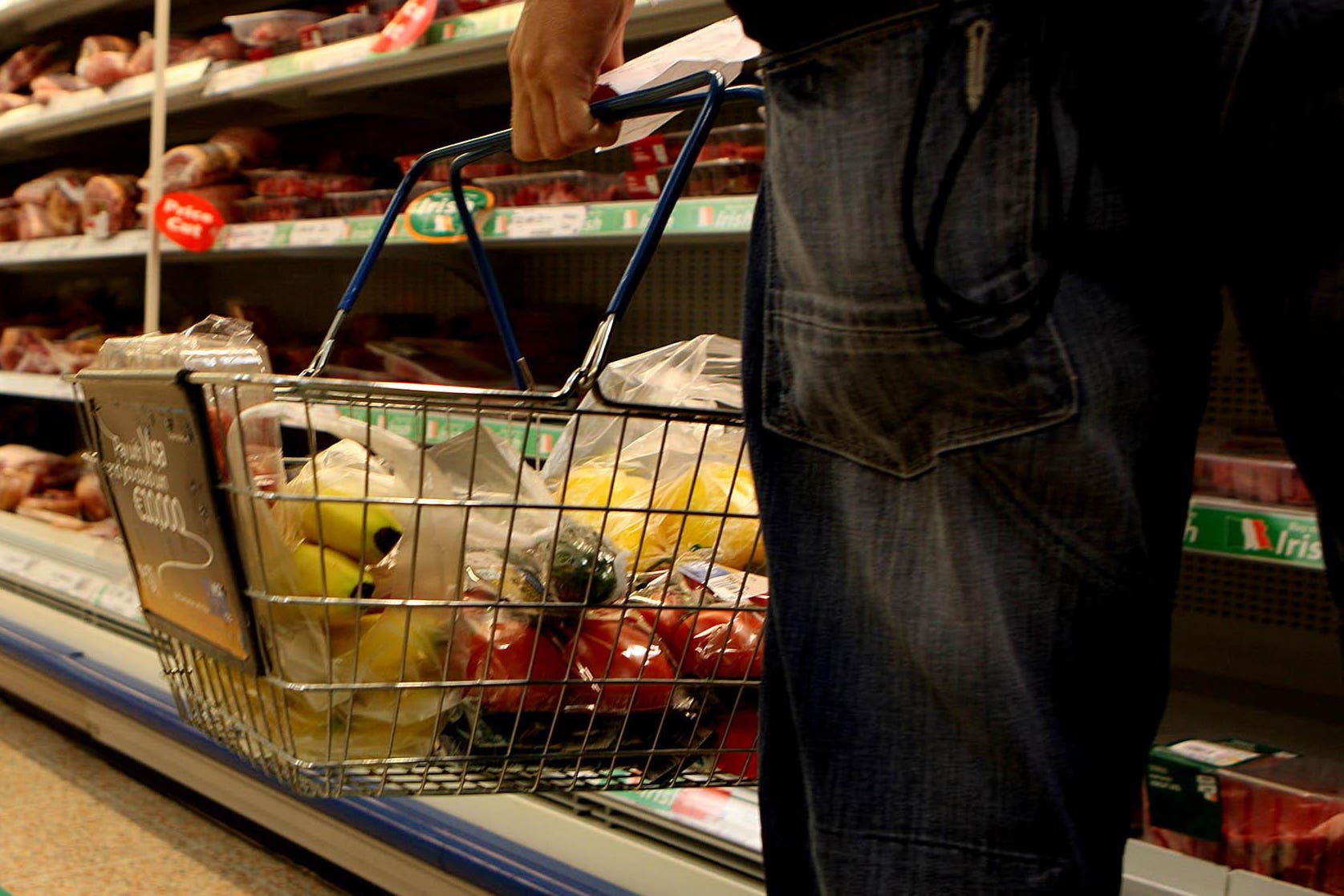Fossil fuel cost rises and climate change ‘adding £407 to household food bills’
The report suggests the majority of food price rises is down to rising temperatures and the higher price of oil and gas.

Your support helps us to tell the story
From reproductive rights to climate change to Big Tech, The Independent is on the ground when the story is developing. Whether it's investigating the financials of Elon Musk's pro-Trump PAC or producing our latest documentary, 'The A Word', which shines a light on the American women fighting for reproductive rights, we know how important it is to parse out the facts from the messaging.
At such a critical moment in US history, we need reporters on the ground. Your donation allows us to keep sending journalists to speak to both sides of the story.
The Independent is trusted by Americans across the entire political spectrum. And unlike many other quality news outlets, we choose not to lock Americans out of our reporting and analysis with paywalls. We believe quality journalism should be available to everyone, paid for by those who can afford it.
Your support makes all the difference.Climate change and soaring fossil fuel prices have pushed up the average household food bill by more than £400 this year, a report estimates.
The warning comes after the latest figures showed annual food inflation had risen to almost 15%, which campaigners said put millions of British families and children in food insecurity – forced to skip meals or go hungry.
In the report commissioned by think tank the Energy and Climate Intelligence Unit (ECIU), researchers from the universities of Bournemouth, Exeter and Sheffield looked at the consequences for food supplies of oil and gas price rises and rising global temperatures.
They found the combined impacts of climate and oil and gas prices have driven up average UK household food bills by a total of £11.4 billion.
The cost to the average family is £407 this year, or nearly £34 a month.
Of the £407, some £170 is due to climate change and £236 is the result of high oil and gas prices, the researchers estimate, revealing the risk of a food system reliant on fossil fuels.
The report said that the lion’s share of current food inflation was down to the energy price shock and climate change, with 88% of the 12.7% increase in prices seen by July 2022 down to the two factors.
This summer’s drought and the record-breaking heatwave in the UK and Europe have been made many times more likely by climate change and have hit yields and quality of a wide range of crops.
Climate change is also pushing up the risk of extreme weather events around the world, such as the recent devastating floods which killed hundreds and destroyed homes, infrastructure and agriculture in Pakistan, the second biggest importer of rice to the UK.
Meanwhile, oil, gas and synthetic fertiliser – made from or using fossil fuels – have seen prices jump in the first half of 2022 as a result of the invasion of Ukraine by Russia, a major fossil fuel producer.
Agricultural production and the food chain are fossil fuel intensive, from fertiliser for growing crops and fuelling farm vehicles, to the processing, transport and sale of goods – as well as storing and cooking food in homes.
The report warned that even after the current spike in the prices of fossil fuels passes, rising temperatures and more extreme weather will continue to increase – without action to halt climate change – affecting food supplies.
With the UK importing 40% of its food and agricultural inputs, it is vulnerable to the changes in global food supply chains, the experts said.
The report’s authors reviewed the recent scientific and economic research that addresses links between fossil fuels and climate change and UK food prices to draw their conclusions.
Honorary professor Wyn Morgan from the University of Sheffield and one of the report’s authors, said: “The analysis underpins how the UK food system as a whole is exposed to global climate change and events on world markets and points to the importance of action to promote a more resilient food and agricultural sector in the UK.”
It is a powerful reminder of the fragility of a global food system reliant on fossil fuels
Dr Jim Scown, from the Food, Farming and Countryside Commission, said: “This report sets out how geopolitical and climate shocks, such as the rising costs of energy caused by the war in Ukraine and the extreme heat and now drought in the UK, are coming together to increase the price of food for people at the checkout.
“It is a powerful reminder of the fragility of a global food system reliant on fossil fuels.”
He called for a transition to an “agroecological food system”, with support for farmers to farm in nature-friendly ways that store carbon and help landscapes cope with climate change as well as producing healthy food that can enhance food security.
Matt Williams, climate and land programme lead at ECIU added: “Better protecting our soils, planting trees and hedgerows to protect against extreme rainfall and shifting to low-carbon fertilisers are non-negotiables if we want our farming to become more resilient and ultimately to protect our food security.”